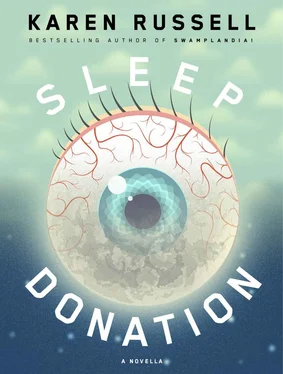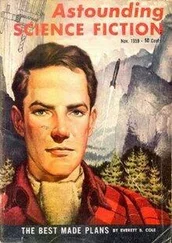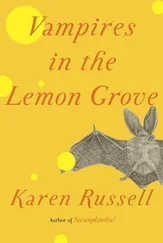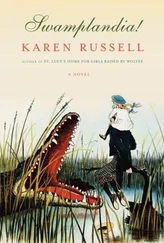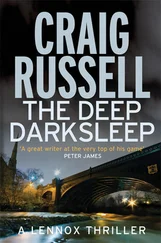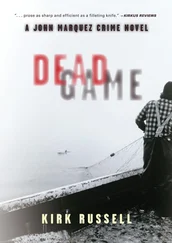“The nightmare is over.”
“The nightmare is over.”
“It was a miracle: I slept through the night, and I woke up.”
We three watch it together in the Harkonnens’ living room, violin music swelling out of the speakers. Inside the Sleep Van, the video’s hero, Baby A, snores lightly under the leaf-sized green mask to replenish the black tanks of sleep.
Nurse Carmen knocks once and pops her head in: “She’s done! Did a great job.”
We switch the TV off.
Baby A goes back to her mom. Now she’s awake and hungrily nursing, her white-socked feet doodling on air. One day soon she’ll wake up to what we’ve done, and what we’ve taken from her.
“See you next Wednesday night.”
“See you then,” the two adult Harkonnens echo.
“We will never overdraw your daughter,” I hear myself promise them, responding to some fleeting shadow that crosses both faces.
I make this promise at a moment when people are plunging their straws into any available centimeter of shale and water, every crude oil and uranium and mineral well on earth, with an indiscriminate and borderless appetite. Fresh air, the sight of trees —these are birthrights and pleasures that we seem bent on extinguishing. Some animals we’ve turned out to be. We have never in our species’ history respected Nature’s limits, the doomsday speculators announce, smacking their lips, until it seems like some compensatory sucrose must flood into their mouths every time they say the words “mass death.” According to their estimates, our species will be extinct in another generation, having exhausted every store of water and fuel on the planet. But this baby is small enough, and our need is great enough, that the nurses can be exquisitely precise, never withdrawing from her fleshy aquifer more than the recharge rate. We take, at most, six hours from her. We ration our greed.
The Sleep Van, that white pod, readies itself to pull away from the mothership of the Harkonnen residence.
“How far away are we from… from synthesis?” Mrs. Harkonnen wants to know.
“Oh, goodness. That’s the dream, isn’t it?”
Now we three give each other these faith-transfusions.
Later, alone in the trailer, I continue to make outreach calls to donors with the narcotized zeal of all the other night-shifted Corps recruiters: “Thanks to your generous support, eighteen insomniacs will sleep through the night, and open their eyes at dawn. Thirty-three percent of our patients make a full recovery. .”
You can’t argue with those numbers, can you? I plan to one day ask Abigail.
Granted, we never gave you a choice, but wouldn’t you have agreed to transfer those dreams to us, knowing now what you could not know then? This sort of subjunctive calculus, nobody teaches in school. Artificial sleep, for example, “sleep for all” —who can say if we will achieve it? I keep roto-dialing strangers, begging for their surplus unconsciousness. Next Wednesday night, Baby A and I are both scheduled to donate. Somewhere, let’s hope, on the opposite side of the world or galaxy, there is a research team working out a more reliable source.
Ever since the dawn with Mr. Harkonnen, I have been unable to pitch in the same way. I have no idea why this should be so. I only know that at Drives, I speak in my own voice about the Slumber Corps, and I don’t retell the story of Dori’s death. I don’t relive her ending, or go into the convulsions. When my voice shakes, it’s only because I’m nervous —I’ve got no practice at this sort of storytelling. I do talk about my sister, who she was before the crisis, although I find this makes me shy. Unfettered from her death, Dori’s ghost takes on new shapes, and I find myself remembering more and more about her. In this new pitch, I describe her as a teenager, and even earlier. I mention the many insomniacs my sister’s age or younger who have been cured by transfusions, and who can dream on their own once more thanks to the Slumber Corps. Often, I lead with Baby A. Imagine, I tell them, how she’ll feel when she grows up, and learns how many lives she’s saved.
If potential donors tell me they cannot afford to spare their sleep, I never press. The results of the new approach? By every metric we’ve got —donors recruited, sleep donated, insomniacs’ lives saved —my pitch is a disaster. There are Drives where I only recruit five donors. There was one Drive, on a rainy Thursday night outside the shopping mall, where I recruited none. My “zeros” were actually zero, which has never happened to me before. I’ve fallen so far that I’m not even ranked, nationally, as a recruiter. In our Solar Zone, I’m number three of six. But you know what? Some people do give. I’ll leave a Sleep Drive with a third fewer recruits than I was expecting for a crowd that size, but Dori, inside the people with whom I leave her story, is an ellipsis, alive. She’s not a nightmare I’ve implanted within them, a means to an end —of that much, I feel almost certain.
If I stop telling Dori's story, I wonder, where will she go?
Jim’s out-and-out despondent. He paces our trailer with watering eyes. It’s that Jim-despair that feels at once completely false, like the maudlin dirges of horn instruments on a Mexican soap, and genuine, out of his control. Rudy Storch is furious with me, salty and affronted; worse yet, I’ll sometimes catch him casting me looks of feral betrayal, as if somehow I’m the toothy trap that sprang shut on his paw.
“Edgewater, goddamnit. Have you seen your zeros? How you sleep at night, I do not know. This experiment is up , it has got to stop.”
He grits his teeth; he doesn’t touch me now, or scream at me. He won’t joke.
“Please. Please. I understand that you’re more comfortable. But what you’re doing is irresponsible. It’s… it’s…” he sputters, his eyes cloudy with exhaustion. “It’s…”
He never finishes, and it doesn’t matter. Dori’s quieted, she’s become uncooperative. I can’t go back to the old style of pitching now.
The Whistle — Blower’s Hotline
The first three times I call, I hang up.
The fourth time I call, I get an automated female voice, thanking me for contacting the Slumber Corps Whistle-Blower’s Program. This unshockable voice instructs me to leave the most detailed message possible about the institutional corruption I have witnessed, or in which I have participated, to include fraud, waste, abuse, policy violations, discrimination, illegal conduct, unethical conduct, unsafe conduct or any other misconduct by the Slumber Corps organization, its employees or its volunteers.
I drop the phone as if scalded.
To honor my contract with Mr. Harkonnen, I take the bus to make my donation at our regional Sleep Donation Station. This month I am certain that I will be rejected at the screening —I have been dreaming of Baby A nonstop, of the flutter-suck of her tiny mouth. In one nightmare, she breast-fed from my sister, who had a saint’s face in death, pale and sad and lit strangely from below, one green eye eaten away.
What uglier proof of its deep pollution could my mind present me with?
I am afraid of these dreams, which I cannot stop or change.
I am afraid that even my desire to do good will spin out of my control, and become evil.
Orexins have been reported in Uganda, Taiwan, England. Infected sleep was transfused in Chile. In the Mobi-Office, Jim is calling me “baby” again, I think because it’s been a month now and I haven’t said anything to anyone about Baby A’s exported sleep. Sometimes I think I can feel Jim’s secret exerting a subtle gravity in my body, like a sick second pulse. I worry that it’s warping my dreams in ways their machines won’t uncover in time and perverting even my conscious intentions.
Читать дальше
